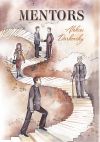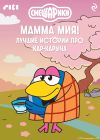Текст книги "Английский для PR-специалистов"

Автор книги: Ксения Симонова
Жанр: Учебная литература, Детские книги
сообщить о неприемлемом содержимом
Текущая страница: 2 (всего у книги 8 страниц) [доступный отрывок для чтения: 2 страниц]
UNIT II
NEWSPAPER REPORTING
I. Read and learn new words:
rewrite man – литературный редактор
getting the right news – сбор новостей
make-up editor – редактор
human interest stories – статья для всех
to conduct an interview – брать интервью
stories on crime – сообщения о совершенных преступлениях
perform – представлять что-либо перед публикой, аудиторией
a great deal – много, огромное количество
selection of the best items – отбор наиболее актуальных материалов
response – ответ, отклик
personality sketches – статьи-зарисовки
anew – заново; по-новому, по-иному
item – газетная заметка; новость, сообщение
readership – читатели; круг читателей, читательская масса
II. Read the text and form the main idea of the text:
NEWSPAPER REPORTING
The newspaper printing is a rather unusual activity since each day the newspaper material is prepared anew. Newspaper includes editorial board work the following functions: getting the right news, writing it in the form of an article, selection of the best items for the print, and displaying the selected copy in the paper.
All these tasks are performed by journalists, editors and rewrite men, photographers and make-up editors responsible for the issue of the paper.
Thus, the newspaper reporting starts with collecting information for the paper. However, journalism does not stop here. Newspapers and magazines publish a great deal of stories, not only news items or political stories, for example, stories of humorous or some other type. Such essay-type nicies may be called human interest stories. Besides, newspapers carry many items on sports, personalities of today as well as stories on science?
art and technology. Rather popular are also the reports about the flights of astronauts and space research matters in general.
Human interest stories are often written in the form of an interview, or as some journalists say, a «profile» is given. It is no secret that different newspaper publications differently influence the reader, this depending on the level of the skill of the journalist himself or the type of the topic being covered.
One can often hear some reporters who have just started their career in journalism asking this question: how to conduct an interview? There are hardly any rules to that effect because each interviewee is different. In most instances, the journalist's problem is how to get the interviewee to start talking. The opening questions, therefore, are of special importance. The reporter should not ask questions that call for only yes-or-no response. Another problem is how to keep on talking. Some interviewers take copious notes, others trust their memory and take notes only about the exact names, places, figures, and the like.
The above-mentioned profile-type stories may be characterized as «personality sketches» reading which one learns much about interesting aspects of somebody's life. Other everyday topics covered by newspapers are stories on crime, medicine and law. Those organs of press which focus on entertainment, crime and just gossip are justly called «commercial». These papers are published primarily for profit. Usually they have a considerable readership.
EXERCISES COMPREHENSION
I. Answer these questions:
1. Why is the newspaper printing an unusual activity?
2. What does the newspaper reporting start with?
3. What do newspapers and magazines publish?
4. What articles may be called human interest stories?
5. What reports are rather popular?
6. In what form are human interest stories often written?
7. What are the journalist's problems?
8. What other everyday topics do newspapers cover?
II. Note the pronunciation of the following words:
Newspaper, popular, readership, detail, therefore, activity, journalist, interviewee, broadcasts, coverage, portability.
III. Give the meaning of the following word combinations, suggest how they can be translated into Russian:
The above-mentioned; each interviewee is different; everyday topics covered by newspapers; editorial board; yes-or-no response; in most instances; organs of press; the opening questions.
IV. Suggest the English for:
Газетопечатание, статья для всех, современник, воздействовать на читателя, предложить рецепт на этот счет, умение поддержать разговор, цифровые данные, как правило, однозначный ответ, сплетни, в целях наживы, коммерческие газеты, каждодневные темы газет.
V. Find synonymous to the following words:

VI. Compare the following English and Russian words:

VII. Add the necessary prepositions or adverbs:
Her Daily Papers
… the afternoons it was the custom… Miss Jane Marple to unfold her second newspaper. Two newspapers were delivered… her house every morning. The first one Miss Marple read while drinking her early morning tea, that is, if it was delivered… time.
Today, Miss Marple had absorbed the front page and a few other items… the daily paper that she had nicknamed «The Daily All-Sorts», this being a slightly satirical allusion… the fact that her paper, the Daily Newsgiver, owing to a change… proprietor… her own and… other..: her friends' great annoyance, now provided articles… men's tailoring, women's dress, competitions… children, and complaining letters… women and had managed to push any real news… any part… it but the front page. Miss Marple, being old-fashioned, preferred her newspapers to be, newspapers and give you news.
… the afternoon, having finished her luncheon, she had opened The Times. Not that The Times was what it used to be. The maddening thing… The Times was that you couldn't find anything any more. Instead… going… from the front page and knowing where everything else was so that you passed easily… any special articles… subjects… which you were interested, there were now extraordinary interruptions… this routine. Two pages were suddenly devoted… travel… Capri… illustrations. Sport appeared… far more prominence than it had ever had… the old days. The births, marriages and deaths which had… one time occupied Miss Marpie's attention first… all owing to their prominent position had migrated… a different part… The Times, though… late, Miss Marple noted, they had come almost permanently to rest… the back page.
Adapted from «Nemesis» by Agatha Christie
SUPPLEMENTARY READING
THOSE STRANGE HEADLINES
When a newspaper gets its material from its own reporting staff or from outside contributors the copy, as it is called, is passed to sub-editors. Their duty is to overlook, go through it, check if for mistakes or possible libelous remarks, and shape it for the available space. They have also to provide headlines which will give the reader in the shortest possible way a good idea of what the report or article contains.
These head lines have to be fitted into very narrow columns; so the sub-editors have a difficult task. Long words are only a nuisance, therefore quite small ones have to be used; and this has caused the creation of a journalistic language of its own, which we call «Headline English».
How does a sub-editor set about his work of composing short, snappy headlines which are, at the same time, immediately comprehensible to the readers of the newspaper?
One obvious way is to cut down the names of prominent people; so in Headline English, Sir Alec Douglas-Home may become Alec or Home.
Another feature of Headline English is the replacement of adjectives by nouns, because the later are shorter.
One may also meet a headline which contains several nouns jammed together; for example, «Smoking Report Outcry Clash». This would refer to the report made by a medical commission of inquiry into the dangers to health caused by smoking, especially of cigarettes. The verdict of the doctors has caused alarm and protest among smokers; and the tobacco trade is challenging the verdict and disputing with the doctors. The whole thing is thus confined in the four words in the headline.
Another habit of sub-editors is to use abbreviated names of organizations and institutions, and this is frequently the case in reports or crimes. You have certainly heard of the Criminal Investigation Department which is housed at Scotland Yard. In describing police action the makers of headline drop the world «Scotland» and simply say «Yard»; so you may read: «Blonde dead in luxury flat, Yard moves». That might suggest to you that the corpse of a fair lady has somehow moved over a spare of three feet. But, of course, it really means that the police at Scotland Yard are investigating what may be an accident or crime. Sometimes the initials C.I.D. are used, or sometimes just this mysterious «Yard». I have seen a headline announcing «Yard moves against Weediest». This had nothing to dowith gardening or agriculture. It meant police action against persons illegally procuring and doping themselves with cigarettes made of marijuana. Notice, by the way, that in such a headline the world «moves» can be taken either as a verb, in the sense: «The Yard moves», that is, the Yard takes action; or as a noun, in the sense: «These ere the moves, the actions of the Yard».
In report of that kind people are not arrested: they are «held», thus saving four letters. Also, quite old-fashioned words may be employed because they are short. «Conference» is rather long; so sub-editors sometimes prefer «parley», which nobody would now use to describe a discussion in their ordinary conversation; but in the Press, Trade Unions are reduced to T.U. and a Trade Union Conference becomes a T.U. Parley.
The newsvendors' bills announcing the contents of papers use the same headline language, and this can be very baffling to strangers. One who saw the brief statement «England Collapse» might think that the nation was financially ruined. But it would probably mean that the English batsmen had been doing badly in a cricket match!
Here are some newspaper headlines with explanations: Yard will probe dog bets coup = Scotland Yard will investigate the fact that at a greyhound track a dog not expected to win a race was heavily betted on and won;
coin-in-slot TV gets go-ahead = a plan under which a television viewer will pay a certain sum of money into a meter attached to his television receiver to enable him to see a film, has been approved by the authorities;
carpets in state of upheaval = the carpet industry is in a state of disorganization;
hijack bandits = thieves stole a lorry and its contents; minister quizzed over oil deal = a Government minister was asked questions in Parliament about an agreement concerning petroleum;
rail wave causes road jam = the driver of a locomotive waved to a signalman. The signalman thought that driver was ill, and altered the signals for the train to stop. The result was that motor-cars were held up a considerable time at a level crossing;
big power order = a large order has been placed to build plants to generate electricity;
steamroller bid fails = someone made an unsuccessful offer to buy a firm making steamrollers;
road toll up on last year = more people were killed or injured on the roads of Britain this year than last year;
canal boy saved = a boy was rescued from drowning in canal;
drug tip for Yard = someone has given Scotland Yard some information about illicit traffic in drugs;
railways bit = something has happened which prevents the normal functioning of railways;
pledge on poison toys = a promise has been made that paint containing lead will not be used to decorate children's toys (a number of children have died of lead-poisoning through licking such toys);
PM took the side door = the Prime Minister left a building by the side door instead of by the main door;
alleged tax plot – 3 more held = three more people have been arrested in connection with a suspected conspiracy to evade paying taxes.
UNIT III
A MULTILINGUAL INTERNET?
I. Read and learn new words:
impression – впечатление
science – наука field – поле, область, сфера деятельности
mother tongue – родной язык
to vary – отличаться, варьироваться
to access – достигать
e-business – дело, бизнес через Интернет
to predict – предсказывать
customer – потребитель
multilingual – многоязыковой
to face – сталкиваться
to exist – существовать
to avoid – избегать
to tend – намереваться, иметь тенденцию
to take into consideration – принимать во внимание
advantage – преимущество
to expand – расширять
II. Read the text:
A MULTILINGUAL INTERNET?
As both Asian and European markets use more to conduct business, there will be an increasing need for language choices for the different markets.
1. English is so often used on the Internet that it might make you think everyone in the world speaks English, or at least give you the impression that it is the world's most widely-spoken language. If this were true, it would, of course, bring benefits for worldwide communication and understanding, though it could also possibly become a threat to cultural diversity. English certainly seems to be everywhere, from films to pop music and TV, and from business to science and other fields.
2. Information varies, but suggests that about 75 % of the pages on the Web are in English. Yet English is the mother tongue for only 5,4 % the world's population, while a further 7 % of the world's population is proficient speakers of English. This means that only around 12 % of the world's population can communicate well in English. This figure is nowhere near the total number of people speaking Chinese languages, which, at 20,7 %, is much higher.
3. More and more people are accessing the Internet nowadays, including many companies wanting to conduct e-business. As a consequence, the position of English is beginning to change. Both Europe and Asia are growth areas, with businesses increasing their use of the Internet and people would apparently rather buy things online if they can order in their own language.
4. It has been predicted that by 2003 only one third of Internet users will be speakers of English. As a result, companies wanting to reach world markets are beginning to realize that they will have to translate their websites for their various customers.
5. However, creating a multilingual website is not an easy task. Companies wishing to translate their sites for different markets basically face both technical and linguistic problems. They are unable to use automated translation systems, which already exist in the market, simply because the quality is not good enough for professional use. Businesses all over the world are now faced with this huge challenge.
6. Moreover, translating websites is only the beginning. Customers with questions or problems will need to discuss matters in their own language, for example, while prices will need to be in the local currency. Dates will also need to be in the right format to avoid confusion. Companies will need to adapt their advertising materials so as not to offend different cultures. They may also have to change their way of doing business to suit certain customers – in Japan, for example, as the Japanese do not tend to give their credit card details over the Web. There are also legal issues to take into consideration.
7. Such vast changes will not happen overnight. It is impossible to say exactly how many texts there are on the Web as the number is changing all the time. One thing which is certain, however, is that a growth in the use of Internet is guaranteed. Companies doing e-business simply need time to translate their sites into the various languages necessary to do business. Meanwhile, more and more material in different languages is being added to the Web at a fast pace.
8. While all this is happening, local companies, with few employees, doing e-business only in the language of their target market and who are aware of the cultural aspects of that market, will certainly be at an advantage. The problems of language and culture could well limit larger companiesfrom expanding and so offer more opportunities to smaller businesses in poorer areas of the world.
EXERCISES COMPREHENSION
I. Do you ever need to surf the Internet for study work purposes? Which language do you tend to use?
II. Look at the following sentences and decide whether you think they are true or false. Read and check.
• Approximately 75 % of web pages on the Internet are in English.
• 7 % of the world's population speaks English well.
• Chinese languages are more widely spoken than English.
• Most people prefer to use English when shopping online.
III. Read the text and choose the most suitable heading (A-I) for each paragraph (1-8). There is one extra heading which is not needed. Which words in each paragraph helped you decide? How have they been paraphrased in the headings?
A. Smaller firms will benefit
B. False impressions
C. A challenge for translators
D. Realizing the need for variety
E. Different cultures, different needs
F. Surprising figures
G. Time is needed
H. Personal preferences
I. Proficiency in English
IV. Here are some phrases from the text you have just read. Choose the correct meaning of each phrase.
1) … a threat to cultural diversity
a. cultural variety might be attacked
b. cultural variety might disappear
2) … are growth areas…
a. are increasing in size
b. are increasing their business activities
3) … this huge challenge
a. having to translate sites into different languages
b. having to improve the quality of existing systems
4) … translating websites is only the beginning
a. there will be further problems to face
b. websites need to be translated first
5) … change their way of doing business
a. companies will need to change the products they sell
b. companies will need to change their approach to business
6) … could well limit larger companies…
a. larger companies will be limited by smaller companies
b. larger companies will be at a disadvantage
V. Now scan the text, underline and note down the reasons why websites will need to become multilingual in the near future. Then, in pairs, discuss any other reasons you can think of for developing multilingual websites.
VI. In pairs, discuss the following questions.
• How might a multilingual Internet help you in your studies/work?
• Can you think of any drawbacks to such a system?
SUPPLEMENTARY READING
HOW TO CREATE, CHARACTERIZE AND BUILD A BRAND
This is «branding» for creative people. Those of us who bring the brand to life in print, TV, or web sites.
1. To do that, there are three things you need to understand or create:
2. The brand's personality.
3. The relationship the brand has with the audience.
Visual icons, symbols or other representations of the brand such as the logo or a character.
So the three steps to building a brand are:
1) Create a character or personality for the company, the product or service. Just as you would for a real person, based on that brand-person's reputation, attitudes and behavior.
2) Build a relationship with your target market based on that personality. Do this over time, using advertising in addition to all other communications, including the way employees are trained to interact with customers.
3) Reinforce the relationship and trigger recognition with consistent visual symbols. These symbols can include everything from a color scheme and logo to an imaginary character, or even the president of the company.
CORPORATE BRANDS AND PRODUCT BRANDS
Generally, the corporate brand should be based on genuine qualities that exist in the company itself. Ideally, the corporate identity should reflect the company's culture, values and practices.
It's difficult or impossible for a competitor to duplicate your client's culture. Much easier to copy the product or service.
Generally, when creating product and service brands you can exercise greater tactical freedom. Take a sharp, critical look at competitors in the market category. Then devise a brand identity that will appeal to consumers.
Yes, it's great if that identity is similar to the parent or corporate brand. A recognizable part of the family. But it doesn't have to be so, so long as it works.
OK, with apologies to all the theorists who are wincing at these generalizations, let us now venture into the mysterious realm of the Real World.
Think of some brands. Could be Sony or McDonald's. Microsoft or Nestle. Maybe Yahoo. Now think of those brands, or one of their products, as a person.
Get real here, the way you really think and feel. Go beyond generalizations like, «young, exciting, professional», or the like.
Obviously, some brands you recognize, but don't really know. Some you like, perhaps some you detest.
And some brands, like some people, are a part of your life.
Those are the brands you know very well. And by owning or using them, well, it says something about you. In fact, when you can't buy them or find them or use them – when you cannot interact with your favorite brands – you may feel disappointed. Dare we say disgruntled or depressed? «Mom, me and my friends want to watch MTV!»
There are probably other brands you would like to bring into your life. Brands you aspire to posses. Because they would say something about who you are by virtue of association. «Hey, check out my genuine Rolex, man. Yeah, I'm making the big bucks».
Or more quietly, «I think I'll buy the Brand Zed pharmaceutical instead of the less expensive generic. That way I feel I'm getting the best. And nothing is more important than my good health».
The artistry in all of the above lies in creating a brand that has a relationship with consumers, one that fulfills a genuine psychological need, one that is meaningful in human terms. Like a good friend. Or interesting person. Or someone you admire or would like to associate with.
GET THE IDEA?
THEN LET'S GET DOWN TO BUSINESS
For some clients you will need to create a brand personality for the company, and one for each individual product or service. So for a large company with multiple services, you might create an entire family, with distinctive personalities for each. Typically, a parent brand and sibling brands.
So to start, pick a product or service or company, and then define a brand personality. Next, describe your brand in one short paragraph as you would a person.
Now that you have a clear definition of the brand personality, bring it to life in your ads.
In the way you write, which should express the brand's personality, not the writers.
In the appearance of your ads, which should be formal or friendly or whatever is appropriate to the brand's personality.
And remember that a brand should differentiate the product from competitive offerings. Make it distinctive.
Key idea: a brand is like a person. Create it that way. Think of it that way. Nurture it that way.
Coke has built it's brand by consistently reinforcing the logo, its «face».
McDonald's has done Coke one better by introducing a character that gives the brand a human personality.
Positioning vs. branding: For your consumer, a product's «position» ls that one simple thing that first comes to mind or heart.
The «brand» is everything else. From appearance to reputation. From Personality to values… such as 'this product stands for quality and reliability.
Внимание! Это не конец книги.
Если начало книги вам понравилось, то полную версию можно приобрести у нашего партнёра - распространителя легального контента. Поддержите автора!








































